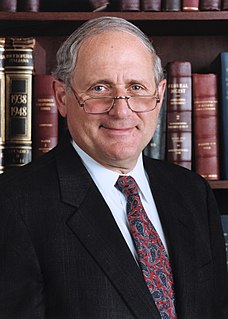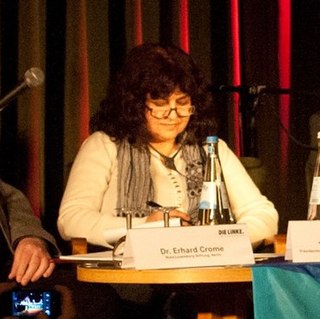A Quote by Arundhati Roy
Public support in the U.S. for the war against Iraq was founded on a multitiered edifice of falsehood and deceit, coordinated by the U.S. government and faithfully amplified by the corporate media.
Related Quotes
In my head, thought, I would love to do an interview where it's just sort of de-constructed - the talking points of Iraq - sort of the idea of, is this really the conversation we're having about this war? That if we don't defeat Al Qaeda in Iraq, they'll follow us home? That to support the troops means not to question that the surge could work. That, what we're really seeing in Iraq is not a terrible war, but in fact, just the media's portrayal of it.
Since there is no system of public education, the great majority of my fellow citizens is frighteningly ignorant. They have no idea where Iraq is. They accept as the gospel whatever the government tells them. Good grief, any other normal country would have been against the Iraq war! But we live in an abnormal country, governed by experts in deceptive advertising.
Yes and no. Because America has only about 1 percent of the population serving in the military, it is hard for many civilians to understand the sacrifices military families make. However, my experience is that after the Vietnam War, the public learned that they should support the military whether or not they support the war. You've seen that outpouring of support for the veterans of both Iraq and Afghanistan.
We are organising our enemies into a formidable force, we are The US public has turned against the war, the Republicans and Democrats have turned against the war. And so when the American public turns against the war and the Congress turns against the war, it suggests that Americans feel we cannot win that war in those conditions. So the Iraqi Commission says, "Well, we can't win this war militarily, we need to reassess potential allies." There's Syria, there's Iran.
During the run up to the Iraq War, Mike Farrell and I did get on television kind of frequently, but then they saw that that didn't work. They really couldn't bait us into being stupid, so they stopped. You know the mainstream media, corporate media, avoids ever giving anyone who has anything to say a platform, if they can possibly help it.
I voted against the war in Iraq. I voted against the first Gulf War. I think war is the last resort - the last option of a great military power like us. I think that we need to focus on building coalitions. Yes, ISIS must be destroyed. But it should be destroyed by a coalition of Muslim nations on the ground with the support of the United States and the other major powers in the air and in training the troops there.
The difference between the Bush I war against Iraq and the Bush II war against Iraq is that in the first one, we appealed to the sentiments and interests of the different groupings in the region and had them with us. In the second one, we did it on our own, on the basis of false premises, with extremely brutality and lack of political skill.





































